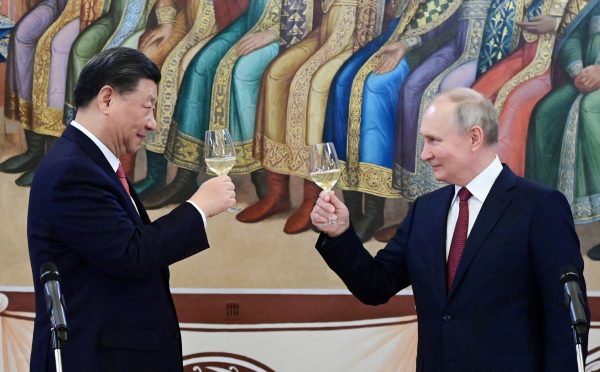This year’s GLOBSEC, the Bratislava-based security conference, was the biggest and most ambitious yet.
Many discussions, especially on cyber issues, were interesting. But even more intriguing were the absent topics and people. U.S. attendance was at a notable low: unlike in past years, nobody came from the White House, Congress, Pentagon, or from agencies like Commerce, Energy, or Treasury that have skin in the European security game. The only official to make it to the Slovak capital from Washington, D.C., was the admirable Kurt Volker, the Special Representative for Ukraine Negotiations.
It was not just the Americans. Germany sent a solitary deputy defense minister; the Austrian, Dutch, and French governments were invisible. The most senior official figures from outside the core central European region were from Ukraine (deputy prime minister), Estonia (defense minister), and Russia’s ambassador to the UN.
On other issues, the people were present but the discussion was still largely lacking. The hottest topic in central Europe is “democratic backsliding.” That was the main theme of a sizzling and well-received opening speech by the outgoing Slovak president, Andrej Kiska. But these subjects scarcely featured elsewhere in the security-focused agenda. Over coffee, participants fumed about the situation in Budapest between the Central European University (founded and sponsored by billionaire George Soros) and the Hungarian authorities. They expressed bafflement over Poland’s law on Holocaust history, which has sparked a sharp protest from the U.S. These could have merited a formal discussion. The stormiest issue of all, the EU’s row with Hungary and Poland over the rule of law, was addressed only fleetingly.
The Central European governments did make their case on other issues. The Czech and Slovak prime ministers jointly decried the EU for meddling and bossiness on migration quotas, and praised (rightly) their own countries’ economic record. But the Slovak prime minister, Peter Pellegrini, made no mention of corruption and media freedom in his speech, despite the recent murder of an investigative journalist, and the subsequent arrest and harassment of a visiting Czech reporter. (In reply to my question about this, he said that journalists get murdered in lots of countries, and police conduct is not a matter for the prime minister.)
In effect, the Czech Republic, Hungary, Poland, and Slovakia have marginalized themselves in European politics. They are seen, fairly or unfairly, as the “awkward squad,” happy to accept money from the EU’s coffers, but unwilling to share burdens on issues such as migration, and troublingly insouciant about European standards on human rights and the rule of law. The big European countries have lost patience and interest, so they stay away from events like GLOBSEC. The CEE states need to show that they are part of the solution, not part of the problem, something which the Baltic states have largely managed but which still eludes the central Europeans.
For the U.S. administration, CEE states are the ones that matter most when it comes to containing Russia. As a result, the NATO military and security presence in the region, especially in the Baltics, Poland, and Romania, is far bigger, better-financed, and more robust than in the past. But if the defense dimension matters more, the political one now seems to matter less. The new U.S. National Security Strategy highlights great-power competition over ideals or alliances. In that game, only big countries can play a big role. Central Europe is small if individual countries countries go at it alone.
All this offers plenty of scope for the Kremlin’s divide-and-rule tactics. Germany is doing deals with Russia on energy and other issues over the heads of the central Europeans. Central Europeans are doing deals with Russia on energy and other issues against the broader interests of the West. GLOBSEC’s forte is highlighting security threats. The dangers of drift are one of them.
=
Europe’s Edge is CEPA’s online journal covering critical topics on the foreign policy docket across Europe and North America. All opinions are those of the author and do not necessarily represent the position or views of the institutions they represent or the Center for European Policy Analysis.





